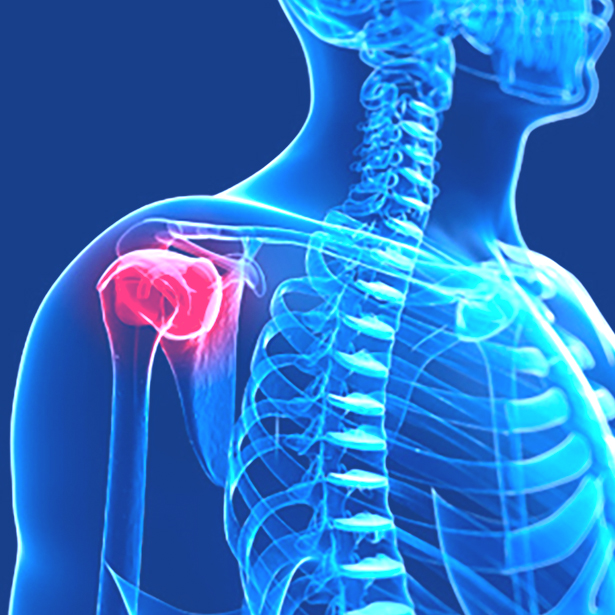
Our treatments provide pain relief for many varing conditions, including;
Rotator Cuff Tendonitis – Front shoulder pain caused by swelling of the shoulder tendons.
Tendonitis – Through repetitive overuse, over strain and aging, tendons can inflamed, which is known as tendonitis.
Impingement Syndrome – Shoulder pain when reaching overhead or behind.
Adhesive Capsulitis – Also known as Frozen Shoulder. Shoulder pain with loss of motion.
Impingement Syndrome
Impingement Syndrome is a shoulder condition that is experienced primarily by older adults. This condition is closely related to rotator cuff tendinitis and shoulder bursitis and can occur alone or in combination.
In most parts of the body, the bone is the inner most structure and is surrounded by muscle. Around the shoulder region, primarily at the rotator cuff, the muscles are actually surrounded by bone. When this muscle gets damaged or injured it begins to swell, which causes knock-on problems around the body.
Because the muscle does not have room to swell, it causes pressure on the blood vessels and reduced blood flow. Reduced blood flow causes muscle tissue to weaken and diminish over time. Shoulder pain is then experienced when the individual attempts to reach behind their back or raise their arm above their head.
What are the causes of Impigement Syndrome?
Over strain of the shoulder muscles is the leading cause of Impigement Syndrome. Jerking movements when lifting heavy items or falling on an outstretched arm can lead to over strain of the rotator cuff and surrounding muscles, causing it to become inflamed.
Impact injury to the shoulder may also cause the muscles to become swollen, resulting in Impigement Syndrome.
What are the symptoms of Impingement Syndrome?
The typical symptoms of Impingement Syndrome include shoulder pain when reaching behind your back and over your head and weakness in the shoulder muscle.
If the rotator muscles are injured for long periods of time the rotator cuff can eventually tear in two. This causes significant shoulder pain and will result in severe weakness and may cause the individual pain and difficulty when raising their arm. Some people may also experience rupturing of their bicep muscle if the impingement process continues.
What are the treatments for Impingement Syndrome?
The primary treatment for Impingement Syndrome is rest and limiting the movement of the shoulder and arm. Avoiding movements that over stretch the shoulder and back should be avoided, along with movements that involve raising the elbow over the shoulder.
Also light stretching in a warm shower can also help to provide some pain relief and also help in the repair process. It is important to do this in a warm shower because the muscle becomes more relaxed and easier to stretch.
The Joint Treatment Centre have a number of treatments that can also provide lasting pain relief. Neuromuscular Therapy and Dry Needle Therapy are two extremely successful treatments in providing pain relief to individuals with muscle pain.
If you feel like you could benefit from either of these treatments, or if you would like more information on shoulder Impingement Syndrome, please do not hesitate to contact us.
